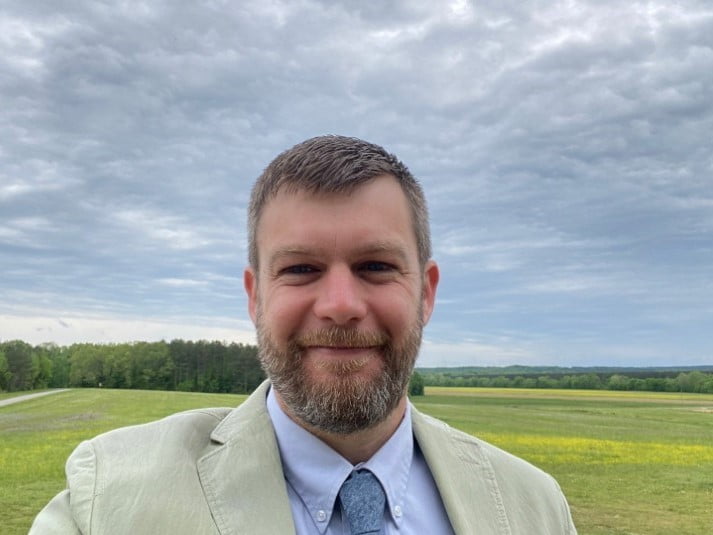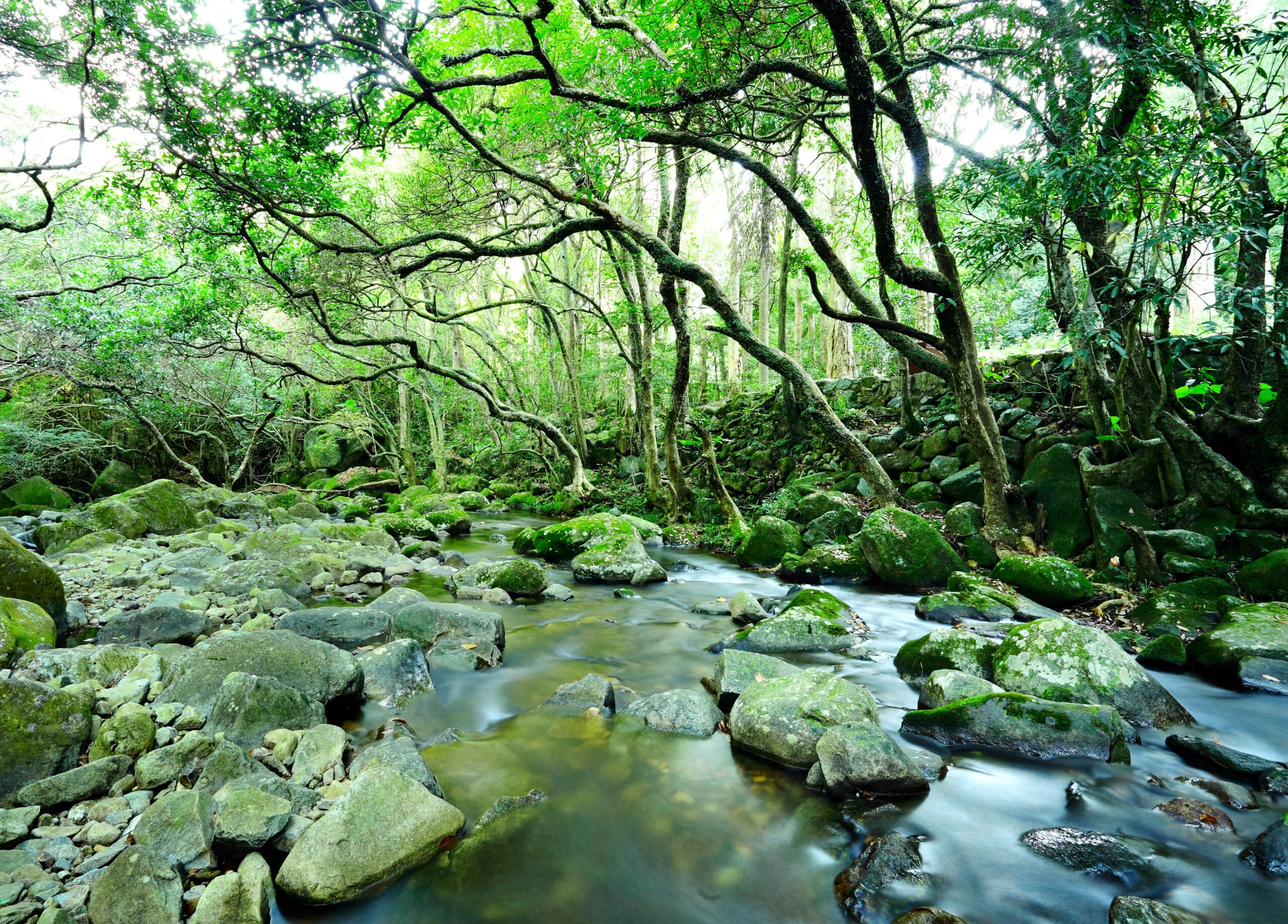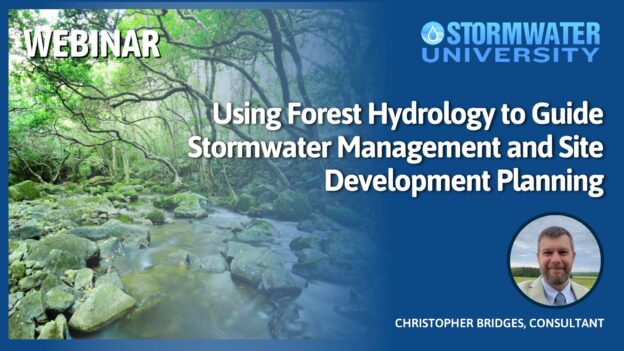Date: October 5, 2023 | 2:00 PM EST/1:00 PM CST
Speaker: Christopher Bridges
Credits: 0.1 CEU / 1.0 PDH
Studies of water cycling in forest ecosystems hold many lessons for sustainable water management. Forest vegetation increases stormwater interception, evapotranspiration and soil infiltration while controlling soil erosion, sequestering nutrients and reducing downstream flooding. As site planners seek to manage the hydrologic impacts of development, a greater understanding of forest watershed processes can be helpful. Therefore, this webinar will provide attendees with an understanding of forest hydrology, watershed processes and management strategies that can be applied to stormwater management planning.
Site assessment will be discussed, including tree inventories and the early identification of stormwater infiltration opportunities. The designation of trees for retention and delineation of tree protection zones to minimize root zone compaction will be addressed in this webinar. Finally, attendees will learn to select tree species most likely to survive in compacted, modified or marginal soils. Soil amendments, tree planting strategies and other practical aspects of stormwater management will be covered with particular attention provided to maximizing the hydrologic benefits of forest vegetation for site development professionals.
Learning Objectives
Upon completion of this course, attendees should be able to:
- Apply principles of forest hydrology and watershed management to guide site planning and development
- Understand how both pre-development tree retention and post-development vegetation establishment can contribute to sustainable stormwater management
- Integrate forest hydrology and green infrastructure strategies into watershed management
About the Presenter
Christopher Bridges, Consultant
Christopher Bridges is a scientist and educator who has worked in agriculture and water resources management for over fifteen years. Chris completed a BSc in natural resources management from the University of Tennessee Martin, and an MSc from the Department of Forestry at Southern Illinois University Carbondale where his research focused on community-based watershed management. He later completed a graduate certificate in geographic information systems from the Department of Earth Sciences at the University of Memphis and a MA in teaching science. In addition to teaching, he provides consulting services in water resources management.







